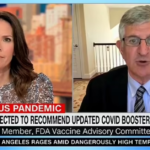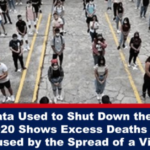
BY PAUL DILLER
COVID-19 vaccine mandates have been in effect at hundreds of universities for more than a year now. The 2022–2023 academic year is the second consecutive year during which many universities require some amount of COVID-19 vaccination from students, faculty, and staff. As the Centers for Disease Control’s recent guide to COVID-19 prevention “no longer differentiates based on a person’s vaccination status” due to the well-known prevalence of breakthrough infections, it is worth asking why colleges and universities continue with COVID-19 vaccine mandates this year and what the effects of such policies will be.
Many university administrators have focused intensely on minimizing the risk of COVID-19 spread on campus. The early announcements of vaccine and booster mandates among Ivy League and other high-profile schools in spring 2020 likely set a standard in higher education that many other institutions’ leaders emulated, often with little or no formal involvement of faculty in setting vaccination policies (though in many instances, whether consulted or not, students and faculty clamored for vaccine mandates).
The prevalence of vaccine mandates at universities has also reflected local politics and culture. The “bluer” the area in terms of its affinity for Democrats, the more likely that the university required a booster last winter in addition to a “fully vaccinated” mandate the summer before. A couple factors complicated this picture. Some schools with strongly unionized faculty and staff (often in deep “blue” areas) sometimes hesitated to impose mandates due to the need to collectively bargain over the details of implementation. Also, plenty of private (and even some state) schools in Republican-leaning states embraced vaccine mandates, although in some instances, governors and state legislatures prevented schools from implementing their mandates.
Recently, schools such as Princeton and the University of Chicago retreated from their booster mandates while retaining mandates for faculty, students, and staff to be “fully vaccinated.” Nonetheless, dozens if not hundreds of universities appear to be holding steady on mandating at least one booster and some, such as Wake Forest, have indicated that they intend to require the recently authorized bivalent booster as well.
Because vaccine mandates tend to reflect the prevailing political mood of an institution’s geographic and academic milieu, these mandates (if enforced) inevitably disproportionately exclude professors, staff, and students who may not share those views. In raw political terms, it is clear by now that Democrats are generally much more likely to be vaccinated—and boosted—than Republicans. Aside from politics, students and faculty more likely to resist the vaccines may be more distrustful of big corporations and government. This may include vegan back-to-the-earthers as much as libertarians.
Whatever their exact viewpoint, the views of those who decline the COVID-19 vaccines and boosters are likely to be different, in the aggregate, from those of the mean student or faculty member. Some of these persons may pursue medical and religious exemptions, where available, to remain enrolled in or employed by their universities, but there is generally no exemption for personal, political, or philosophical beliefs. Hence, whether intentional or not, universities with vaccine and booster mandates are likely to have created a different mix of ideological and political views on campus.
The vaccine mandates for students that were commonplace in academia before COVID-19, such as for the measles-mumps-rubella (MMR) vaccine, may have always skewed the pool of students slightly, but the political and ideological divides on uptake of MMR and other pre-2020 vaccines were not so stark. Moreover, until COVID-19, it was extremely rare for universities to require proof of any vaccines from faculty and staff.
It is worth considering, therefore, the extent to which COVID-19 vaccine mandates are driving more Republican- and libertarian-leaning students and faculty away from certain schools at which they may have already been distinct minorities before the pandemic. To be sure, students often home in on their school of choice based primarily on other factors like curriculum, reputation, family ties in the area, and finances, including the impact of in-state tuition; faculty too are often constrained by family and community ties, finances, as well as the long-term nature of tenured or tenure-track positions. Nonetheless, for those faculty, staff, and students with more options, vaccine policies could play a role in their choice of school.
Many in the academy will say that if viewpoint skewing occurs as a result of COVID-19 vaccine mandates, that is acceptable and even welcome because “antivax” is not a legitimate political viewpoint, or at least not one worthy of representation in an institution of higher learning. The collateral effects of the mandates, however, seem undeniable. Universities have not just driven away students and faculty more skeptical of COVID-19 vaccines and boosters; they are also driving away students and faculty with different views on all sorts of other issues. (To be clear, I am not arguing that vaccine mandates amount to impermissible viewpoint discrimination when undertaken by public universities under the First Amendment. That argument would necessitate doctrinal analysis beyond the scope of this post.)
Given that a core, if often unmet, goal of universities is to test knowledge and expose students to different viewpoints, continuing COVID-19 vaccine and booster mandates may lead many institutions of higher learning to become even more ideologically uniform than they were before the pandemic.
Paul Diller is professor of law at Willamette University in Salem, Oregon.



